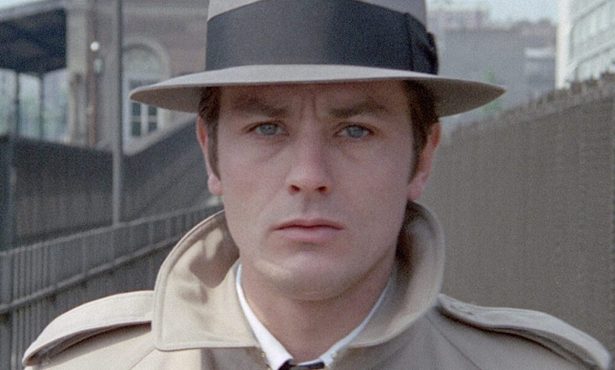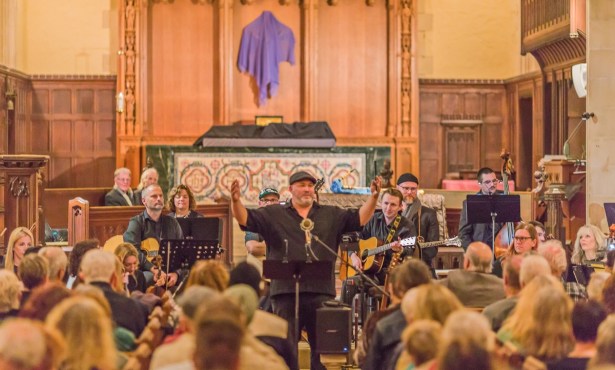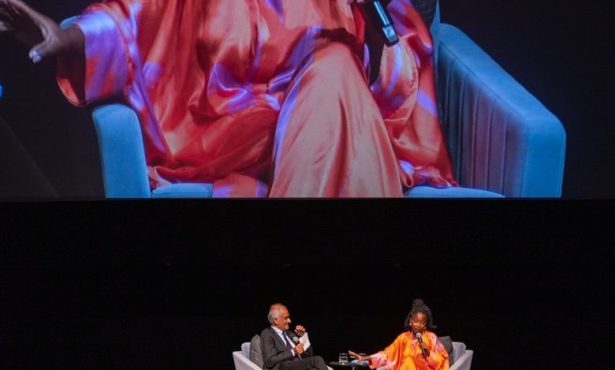The Santa Barbara Writers Conference Gets the Best out of Writers
Blood, Sweat, and Peers
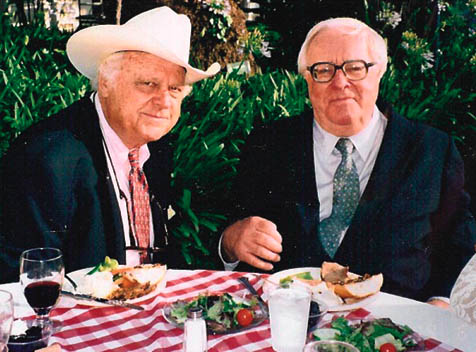
Now in its 35th year, the Santa Barbara Writers Conference has developed the kind of fervent, devoted fan club more commonly associated with boy bands, sports teams, and reality TV shows. Among Central Coast writers in particular, SBWC’s popularity has reached mythic proportions. The conference is the subject of breathless writers’ group discussions and Adult Ed night class lore. But the SBWC’s reputation also extends far beyond the county lines, drawing attendees from around the nation and the world every year. The fact that big name authors like Maya Angelou, Joan Didion, Christopher Isherwood, Gore Vidal, and Eudora Welty have graced the conference in years past may go some way toward explaining the feverish following, but the fact remains that for one week every summer, hundreds of writers converge on Santa Barbara not to sightsee, wine taste, or sunbathe, but to work hard. And they love it.
When writers speak about the conference, the conversation often centers on critiques. “The leader didn’t hold back;” one participant said with apparent glee, “she really let me have it.” That didn’t sound pleasant, but I’ve heard similar stories many times since, always told with exhilaration and pride. SBWC veterans know what they’re in for, and they welcome the risk of self-exposure, the honest critiques, the late nights and early mornings. In a culture bent on achieving comfort at any expense, the Santa Barbara Writers Conference offers something different: the chance to really work at writing; delve into the difficult, frustrating, and painful parts of the process; and come out, at the very least, a better writer.
“We’ve often said, ‘Look, come on, it isn’t all about publishing; it’s about learning to write better,'” says SBWC co-founder Barnaby Conrad (pictured above left, with Ray Bradbury), “but it’s a total lie. All writers want to get published. Sure, they enjoy writing and want to learn to write better, but they want to get published just the same.” Conrad and his wife Mary moved to Santa Barbara from San Francisco in the early ’70s, when Barnaby was offered a teaching job at Cate School. “The headmaster said, ‘The school lies fallow during the summer months; why don’t you start a writers’ conference here?'” Conrad recalls. “I called Ray Bradbury right away-I’d met him but didn’t know him very well. I said, ‘Mr. Bradbury, I have the chance to hold a writers’ conference, and I’d like to have you there.’ He said, ‘Well, I’m not really that interested in that, but who else do you have?’ So I said ‘Well, Charles Schulz, Alex Haley, and Clifton Fadiman,’ none of whom I had, of course. And then when I got off the phone with Ray, I called Schulz, and he said, ‘Who have you got?’ and I just did the same thing again and again, and they all agreed. That’s how it started. It was a little duplicitous, but none of them seemed to regret it.”
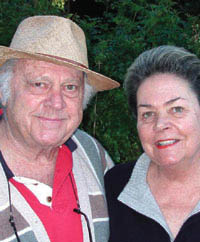
It seems not: Bradbury will address conference attendees for the 35th year in a row this year, and Conrad notes Schulz was present for almost as many years. The Conrads retired from active direction of the conference in 2004, leaving writer and friend Marcia Meier at the helm. Little has changed under Meier’s direction-to her credit-though in her first year she spearheaded the Young Writers’ Program for 14-18 year olds, which continues this year. Also new is a “Taste of the Conference” option for those who want to sample the SBWC experience without committing to a full week. For the most part though, SBWC continues to offer the same schedule that has kept loyal writers coming back for decades. Thirty instructional writing workshops will be taught by the conference staff-a group of accomplished writers and educators. Afternoon and evening offerings include panel discussions and speakers; in addition to Bradbury, this year’s lineup includes best-selling novelist Gail Tsukiyama, and Gregory Maguire, author of Wicked, the book that has become a box office smash as a Broadway musical.
According to Barnaby Conrad, “It’s the workshops that really pay off. They often go on ’til two or three in the morning.” Meier echoes this. “Workshops are really the heart and soul of the conference,” she says, reeling off a list of people who launched their writing careers at SBWC, and even those who found their future partners through participating in the workshops. Of course, love is never a guaranteed outcome of the conference, although Bradbury has plenty to say on the subject. Those taking part are more likely to come away from the experience exhausted, elated, inspired, and ready to whip up a brilliant query letter, get back to that memoir, or put the finishing touches on the next Fahrenheit 451.
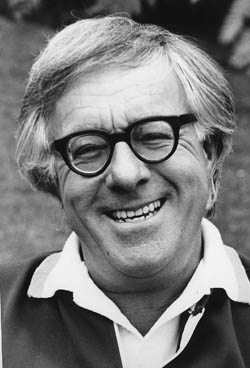
Ray Bradbury: Writer and Lover
In advance of his SBWC appearance on Saturday, June 23, Ray Bradbury, author of The Martian Chronicles, Fahrenheit 451, and Dandelion Wine, shared some thoughts on the craft of writing, the importance of reading, and the power of love.
This is your 35th year at the Santa Barbara Writers Conference-what keeps you coming back? Barnaby and Mary-I love them. I met them up in Northern California 36 years ago, and they proved themselves to be such remarkable people that when they asked me to help them start a writers’ conference in Santa Barbara, I said yes right away.
How has the conference changed since that first year? It hasn’t changed, it’s always been wonderful-they get a good bunch of people to come in to teach what’s valuable in writing.
How do you teach someone to write well? You teach love. All I teach is: If you write what you love and love what you write, you’re on the way to where you want to go. I’ve been in love with writing since I was 12 years old. And don’t write for money; forget it. It took me 20 years to get established as a writer, and 30 years to get an income. I started writing when I was 12, sold my first story at 21, and I was 30 when I published my first decent book. I married a rich girl, and she took a vow of poverty to marry me, because I was making $30 a week.
What do you think it is about SBWC that people love so much? I think it’s a combination of things that Barnaby and Mary give to it. They have a good teaching staff that they pick very carefully, and they have some people there who’ve established themselves by publishing books. Come to the conference and see for yourself. There’s a lot of enthusiasm, and a lot of respect, and a lot of love.

Your new novel, Farewell Summer, is getting some great reviews. Marcia Meier described it as a wonderful, rich story that’s more mature and more lyrical than Dandelion Wine. Do you agree with her assessment? No, because I wrote Dandelion Wine 50 years ago, and the publisher said, “It’s too long; let’s cut it in half,” so they published the first half, and now 50 years later the second half is out.
You mean you didn’t even rewrite it? I don’t ever rewrite anything. I write from explosions. I write out of passion, and never rewrite at all. I’ve got to teach people how to put a stick of dynamite in their mouth and put a goddamn match to it.
Wow, I don’t know if I can quite live up to that as a writer. Everyone’s different-if it works for you, it’s good.
So what are you going to talk about at this year’s conference? I’m going to talk about love. All my life has been changed because I told my love to the world, and people like Federico Fellini were attracted to me. Fellini invited me to come visit him, and when he met me he embraced me and cried, “My twin, my twin,” so my love attracted him.
Do you have other outlets for all that love besides writing? What else do you need?
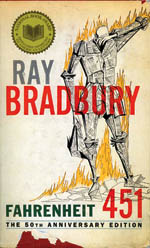
When I read Fahrenheit 451 in school, I remember being both mesmerized and appalled by the idea of burning a book. Do you still have concerns about censorship? Does it ever seem to you like we’ve reached that kind of anti-intellectual crisis in America? There’s no censorship; we’ve never burned books here. We’re a very safe society. The main problem is education: We’re not teaching reading early enough. I keep telling teachers they should be teaching reading at ages three, four, and five, so by the time kids get to first grade they’re really reading.
What do you see as the significance of the Santa Barbara Writers Conference? (Laughs.) People come out filled with excitement and love. If you’re teaching in the right way, they come out and look in the mirror and they love themselves. You’ve taught them how to love themselves and what they do, and to do more of it.
4•1•1
The 2007 Santa Barbara Writers Conference takes place June 22-29 at Fess Parker’s DoubleTree Resort. To register, visit sbwritersconference.com or call 964-0367.

